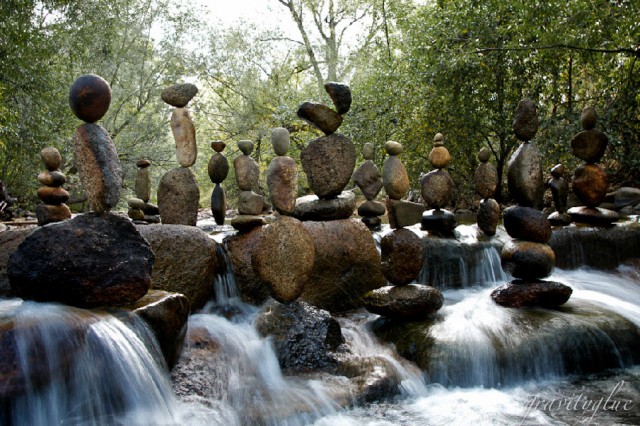Removing rocks from the stream bed or stream edge to stack or throw can be aesthetically pleasing, but very damaging to the habitat you remove them from in both the short and long term. In the short term you are altering water currents, potentially speeding up certain areas and slowing down others which not only displaces wildlife in both of those areas, but may result in neither being suitable for habitation. It also creates a cascading effect in water flow, causing sediment to settle in areas of what is now slow flow and increasing erosion in areas of high speed flow. This disturbs the physical environment of the waterway, as well as its chemical (nutrient), chronological (change over time) development, and oxygenation.
In the long term, moving rocks brings about another issue, which is erosion. All waterways are shaped by erosion, and a rule in geology is the bigger the rock, the more force it takes to move. This rule is universal from boulders all the way down to individual clay particles. Your ability as a person to lift an even moderately sized rock has a monumental impact on the dynamics of the waterway. In some areas, a rock that may fit in just the palm of your hand might only be able to be moved by a once in a generation flood event. A stack of 3 or 4 of these rocks removes the equivalent of HUNDREDS of years of potential habitats, oxygen infusion into the water, or accelerates/decelerates the rate of erosion in the area you removed/added the rocks by hundreds of years. Simultaneously, you are impacting the riparian zone (edge of the waterway), an incredibly important habitat for terrestrial, aquatic, and amphibious plant and animal life. Changes erosion at the edge of a stream, river, or lake impact the whole body of water in all of the same ways as listed above.
Knowing when not to intervene is an equally important aspect of being a good steward to your natural environment as knowing when to intervene. Let nature do it’s thing and you’ll have even more beauty to enjoy when you are surrounded by it
